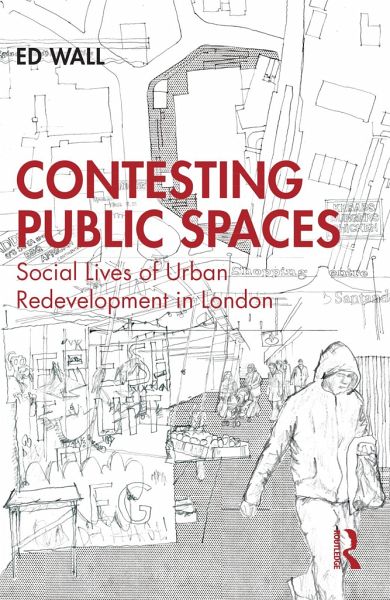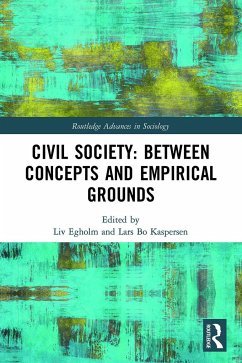
Contesting Public Spaces
Social Lives of Urban Redevelopment in London
Versandkostenfrei!
Versandfertig in 6-10 Tagen
36,99 €
inkl. MwSt.
Weitere Ausgaben:

PAYBACK Punkte
18 °P sammeln!
This book explores concerns for spatial justice as streets, squares, and neighbourhoods are continuously made and remade through planning processes, political ambitions and everyday activities. By investigating three sites in London that have been the focus of masterplanning, Ed Wall exposes conflicts between planning offices and private developers who direct large urban change and community groups, market traders and residents whose public lives are inseparable from their neighbourhoods being reconfigured.The book uniquely brings sociological approaches to what are often considered architectu...
This book explores concerns for spatial justice as streets, squares, and neighbourhoods are continuously made and remade through planning processes, political ambitions and everyday activities. By investigating three sites in London that have been the focus of masterplanning, Ed Wall exposes conflicts between planning offices and private developers who direct large urban change and community groups, market traders and residents whose public lives are inseparable from their neighbourhoods being reconfigured.
The book uniquely brings sociological approaches to what are often considered architectural concerns, revealing challenges as London's public spaces are designed, regulated and lived. Through in-depth research, Ed Wall identifies how uncertainty caused by large-scale urban strategies, the realisation of visual priorities, and uneven relations between private interests, public organisations and daily lives determine the public realm of global cities.
This workis intended for readers interested in how the urban spaces of their cities are continually produced in competing ways-from architecture and urban studies scholars to planners and politicians.
The book uniquely brings sociological approaches to what are often considered architectural concerns, revealing challenges as London's public spaces are designed, regulated and lived. Through in-depth research, Ed Wall identifies how uncertainty caused by large-scale urban strategies, the realisation of visual priorities, and uneven relations between private interests, public organisations and daily lives determine the public realm of global cities.
This workis intended for readers interested in how the urban spaces of their cities are continually produced in competing ways-from architecture and urban studies scholars to planners and politicians.














